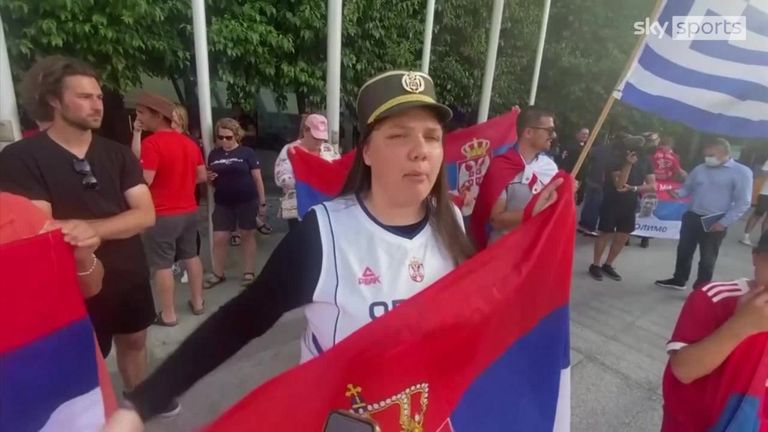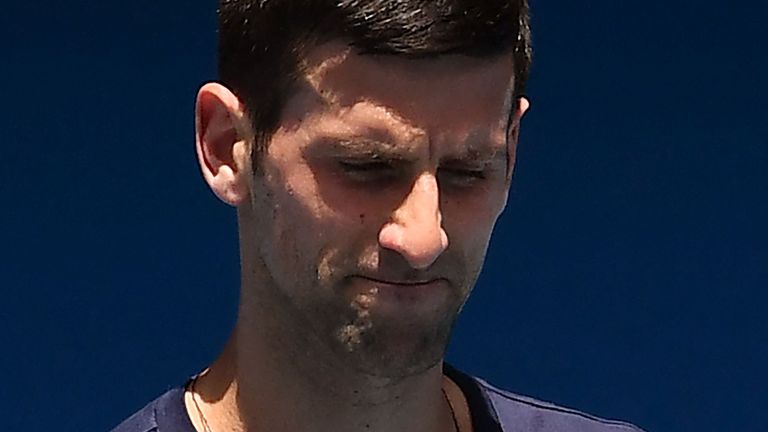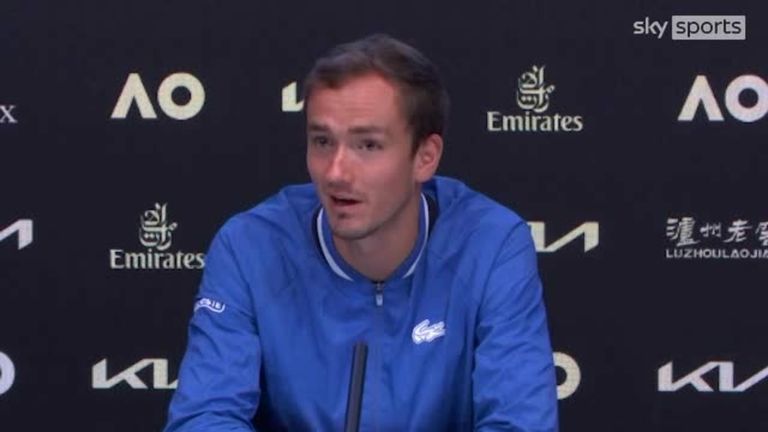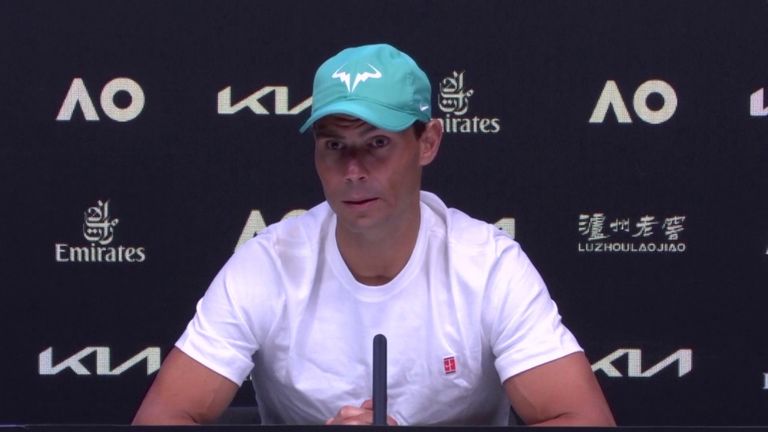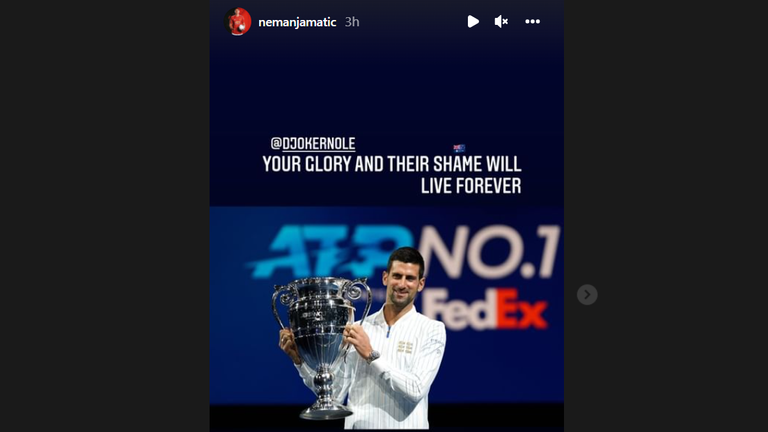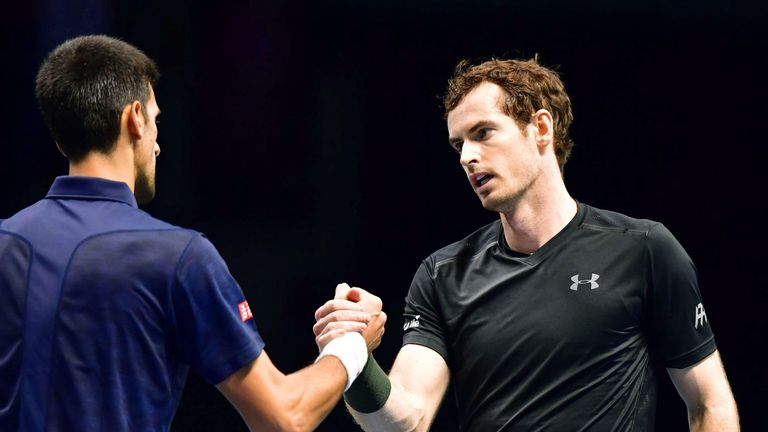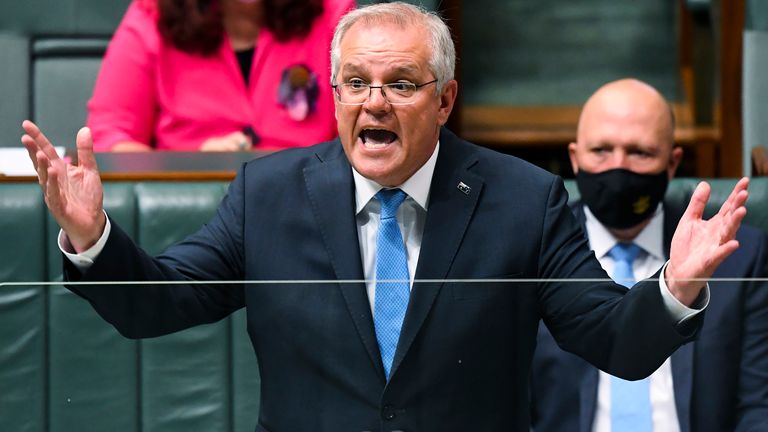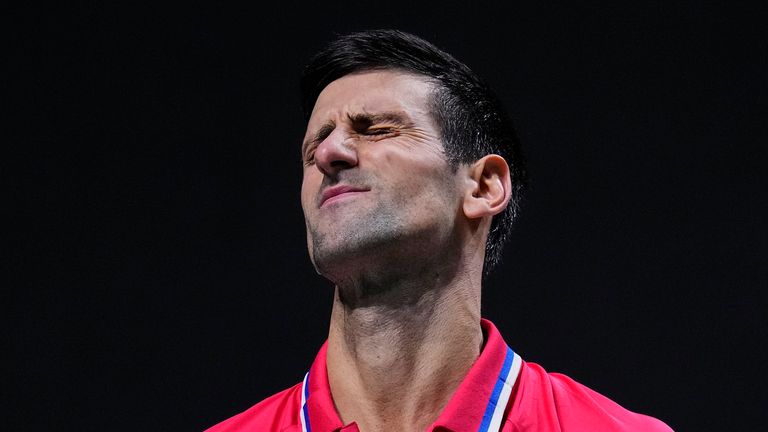Novak Djokovic's 2022 Australian Open debacle: What's happened so far? What happens next?
What now for Novak Djokovic? And what does this mean for the Australian Open? We answer the key questions after the world No 1 lost his judicial review against the cancellation of his visa and has left Australia
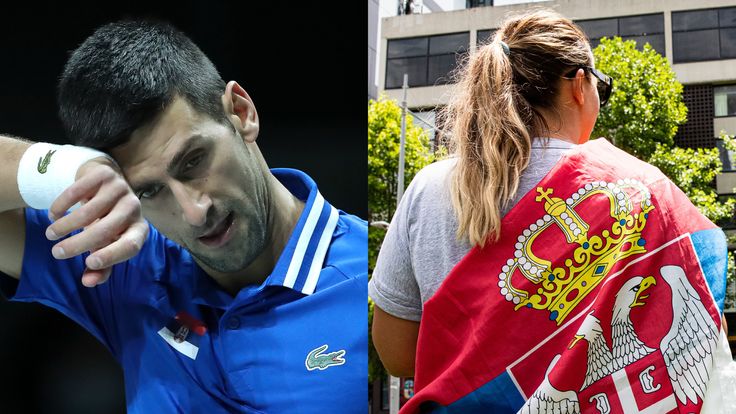
Monday 17 January 2022 05:55, UK
Novak Djokovic vs Australia is a saga that has made headlines across the world. Here, we analyse how it all went wrong and what comes next for the World No 1, who has now left Australia after judges upheld the cancellation of his visa.
In a nutshell, what's happened?
World No 1 Djokovic flew to Australia with a 'vaccine exemption' and arrived in Melbourne on Wednesday, January 5, but was denied entry into the country after nine hours at the airport. The Serb's visa was cancelled due to it not being one that allows for medical exemptions, after which he was moved to hotel quarantine as his team launched an appeal.
On the evening of Monday, January 10 local time, Judge Anthony Kelly from the Federal Circuit Court of Australia quashed the visa cancellation and ordered the Australian Government to pay legal costs and release Djokovic from detention within half an hour.
However, after four days of deliberation, Immigration Minister Alex Hawke decided to use his personal powers and reimpose the penalty on Friday. Djokovic appealed the decision again, but lost his judicial review against the cancellation of his visa in a hearing on Sunday and has now been deported from Australia.
What does it mean for the Australian Open?
Russian second seed Daniil Medvedev will now likely be the bookmakers' favourite when the tournament begins on Monday, ahead of third seed Alexander Zverev.
Sixth seed Rafa Nadal, who shares the men's Grand Slam record of 20 with Djokovic and the absent Roger Federer, could strike a blow in the major title race. Nadal, the 2009 champion and a four-time finalist in Melbourne, would have had to face Djokovic in the semi-finals if the draw progressed according to seeding.
The top quarter of the draw has now been thrown wide open, with Djokovic replaced by Italian Salvatore Caruso, a 'lucky loser' from the qualifying phase, while seventh-seeded Italian Matteo Berrettini is left as the highest seed in the section. Caruso will play Serbian Miomir Kecmanovic in the first round in place of Djokovic.
Tennis Australia issued a statement on Sunday, saying: "Tennis Australia respects the decision of the Federal Court. As per Grand Slam rules, the number one position in the draw has been filled by a lucky loser.
"We look forward to a competitive and exciting Australian Open 2022 and wish all players the best of luck."
What happens next for Djokovic?
Djokovic's withdrawal could also mean losing his world No 1 ranking if Medvedev or Zverev claim his title at Melbourne Park.
Longer term, Djokovic's visa cancellation could further harm his chances of adding to his Grand Slam silverware, with the Australian government capable of imposing a three-year entry ban on the Serb.
His travel to other countries could also be affected, with most requiring visa applicants to disclose if they have ever been deported or had a visa rejected or cancelled.
Should Djokovic choose to remain unvaccinated for Covid-19, his entry into other Grand Slams may also be affected as authorities tighten travel and border restrictions in the third year of a pandemic that has killed more than five million people.
How did Djokovic react to the decision?
Djokovic had the option of trying to take the legal fight further but said in a statement he was "extremely disappointed" by the decision but would cooperate with the deportation.
He said: "I would like to make a brief statement to address the outcomes of today's court hearing. I will now be taking some time to rest and to recuperate, before making any further comments beyond this.
"I am extremely disappointed with the ruling to dismiss my application for judicial review of the minister's decision to cancel my visa, which means I cannot stay in Australia and participate in the Australian Open.
"I respect the court's ruling and I'll cooperate with the relevant authorities in relation to my departure from the country.
"I am uncomfortable that the focus of the past weeks has been on me and I hope that we can all now focus on the game and tournament I love. I would like to wish the players, tournament officials, staff, volunteers and fans all the best for the tournament.
"Finally, I would like to thank my family, friends, team, supporters, fans and my fellow Serbians for your continued support. You have all been a great source of strength to me."
What happened during the appeal?
The parties were back in court to appeal against the re-cancellation of his visa, which took place on Sunday morning.
Hawke cited "health and good order grounds" and said he believed it was in the public interest to send Djokovic home. The decision to overturn the initial revocation was made because the border force did not follow procedure rather than because the judge concluded they did not have grounds.
Djokovic was not detained on Friday night but returned to an immigration detention hotel on Saturday - after an online pre-trial hearing - ahead of his appeal. His lawyers were appealing against what they called an "irrational judgement", and his hearing is early Sunday morning (local) before the Federal Court of Australia.
Some in Belgrade believe Djokovic had been made a political scapegoat by the government of Australian Prime Minister Scott Morrison, who must hold an election by May.
What happened during Monday's court hearing?
Lawyers representing the Australian state presented their case, while Nick Wood represented the world No 1 and put forward their case on why his deportation should be quashed and visa reinstated.
They stated that Djokovic had declared he cannot be vaccinated for medical reasons and pointed to guidance that states vaccination can be deferred for six months if an infection of Covid-19 is confirmed through a PCR test.
Djokovic said during his interview with Border Force at Melbourne Airport that he has had Covid-19 twice - once in June 2020 and once again in December 2021, confirmed by PCR on December 16, 2021.
Djokovic also produced medical exemption documents from Tennis Australia and a panel of experts established by Victoria's state government.
Is Novak Djokovic vaccinated?
Djokovic has still never publicly revealed whether he is vaccinated against Covid-19, but has repeatedly criticised mandates ruling that players must be double-jabbed.
However, the court released a transcript of Djokovic's interview with Border Force, during which the Serb confirmed that he is not vaccinated.
In the transcript, when asked why he was travelling to Australia, Djokovic said: "I'm a professional tennis player and the main reason for me coming to Australia is participating in the Australian Open in Melbourne Victoria."
In response to a question about his vaccination status, he said: "I am not vaccinated."
In April 2020, Djokovic said on a Facebook Live chat he was "personally opposed to vaccinations," while his wife, Jelena, has promoted discredited social media messages linking Covid-19 to 5G technology.
What are Australia's current rules of entry?
Australia currently requires all foreign visitors entering the country to be double vaccinated, and to hold a valid and appropriate visa.
There are medical exemptions whereby some travellers may enter the country unvaccinated, but all of these are viewed and assessed alongside visas by Australia Border Force upon the traveller's arrival to immigration.
Australia Prime Minister Morrison also confirmed Australia Border Force outlined expectations of the federal government to Tennis Australia in letters sent in November regarding vaccinated and unvaccinated entry, and a recent Covid infection was not a valid reason.
Criteria listed by the Australian Technical Advisory Group as permissible reasons for a medical exemption range from acute major medical conditions to any serious adverse event attributed to a previous dose of Covid-19 vaccine.
Why did Australia Border Force deny him entry?
Upon landing in Melbourne, in addition to the visa error, Djokovic's 'vaccine exemption' was deemed not sufficient for border officials with regard to entry into a country that has strict requirements.
The Serb was held for more than nine hours at the airport before ultimately being denied entry, as the federal government has a higher authority than previous decisions and statements made by Tennis Australia, which had been endorsed by the state government.
An Australian Border Force (ABF) statement read: "Mr Djokovic failed to provide appropriate evidence to meet the entry requirements to Australia, and his visa has been subsequently cancelled.
"Non-citizens who do not hold a valid visa on entry or who have had their visa cancelled will be detained and removed from Australia.
"The ABF can confirm Mr Djokovic had access to his phone."
Who initially granted Djokovic a vaccine exemption?
Having been originally named in Serbia's team for the ATP Cup in Sydney, Djokovic then withdrew, leading to mystery surrounding his participation in the 2022 Australian Open.
Last Tuesday, Djokovic then revealed on his social media channels that he had been given an "exemption permission" to travel and play at the Australian Open without a Covid-19 vaccination. The response in Australia and around the world was hugely negative.
The Australian Open released a statement saying his medical exemption had passed a 'rigorous, multi-step' review, which involved two separate independent panels of medical experts.
These were an expert panel made up of doctors from the fields of immunology, infectious disease and general practice, and the Independent Medical Exemption Review Panel appointed by the Victorian Department of Health.
Tennis Australia - the sporting body which runs Australia's Grand Slam - and the Victorian Department of Health had drawn up and finalised plans for Covid-19 vaccination protocols for the Australian Open, and were the ones who granted Djokovic his initial medical exemption.
What were the issues with Djokovic's visa?
Having landed in Melbourne at around 11.30pm local time on Wednesday evening on a flight from Dubai, the 20-time grand slam winner reportedly attempted to enter the country on a visa that did not permit medical exemptions for being unvaccinated.
According to reports, Djokovic and his team submitted the wrong type of visa, which caused heavy delays at the airport.
When Border Force contacted government officials in Victoria to sponsor the visa, they refused to do so.
Indeed, the local government of Victoria, the state where the Australian Open is played, said it would not support Djokovic's application, with Acting Sports Minister Jaala Pulford confirming as much in a statement on social media.
Why was Djokovic in public after alleged positive test?
On Saturday, a filing submitted by Djokovic's lawyers ahead of the appeal hearing revealed that his medical exemption is based upon a positive Covid-19 test from December.
In court documents, it was stated the Serb recorded a positive test on December 16, and has "not had a fever or respiratory symptoms of COVID-19 in the last 72 hours".
However, Djokovic then began facing fresh questions as to why he was pictured in public on the day he claimed he tested positive for Covid-19.
The world No 1 attended an event on December 16 at the Belgrade headquarters of the Serbian national post office, which was honouring him and his career with the release of a series of stamps.
Djokovic posted pictures from the event - in which he is seen maskless - on his Twitter account on December 17.
